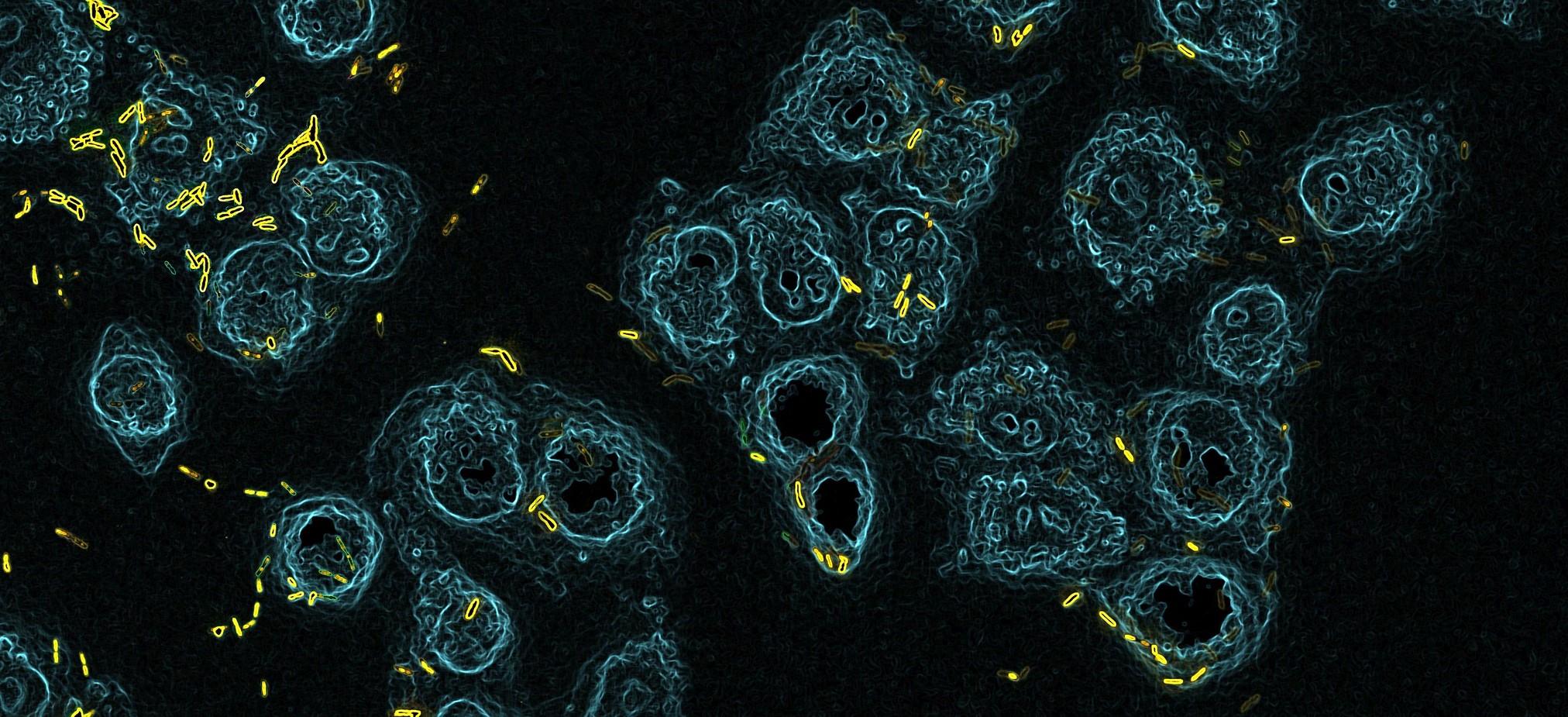
Submitted by Maria Bargues-Ribera on Tue, 22/11/2022 - 15:48
Researchers at the University of Cambridge and the University of Saarland (Germany) have performed a systemic analysis of the metabolism of Pseudomonas aeruginosa – a WHO “critical priority pathogen” responsible for causing serious airway infections in humans – and have identified an unusual and unexpected mechanism that aids its survival in infected tissues. The finding opens the door towards developing better strategies to fight the pathogen.
Context:
- Pseudomonas aeruginosa is common in the built environment and is responsible for causing a variety of serious respiratory infections. People with cystic fibrosis are especially susceptible to this pathogen.
- Pseudomonas can adapt very easily to different infection environments due to its remarkable metabolic plasticity: if a particular nutrient is missing, it readily “rewires” its metabolism to use another.
- Metabolic enzymes usually catalyse very specific reactions. However, some enzymes are “promiscuous” and can catalyze several different reactions.
- During infection, Pseudomonas favours using a very specific set of nutrients, and by blocking (“inhibiting”) the enzymes involved, the infection can potentially be halted.
- Under some circumstances, Pseudomonas finds a way of “bypassing” these important reactions.
In their study, researchers used advanced computational methods to look at which metabolic pathways are expressed during growth on different infection-related nutrients. In doing this, they identified one particularly crucial reaction. However, when this reaction was blocked, the Pseudomonas was able to readily rewire its metabolism by activating a “latent” promiscuous enzyme that could overcome the blockage. This opens the door towards developing better, more targeted therapies for treating Pseudomonas infections. At a time where antibiotic resistance is becoming widespread, disentangling mechanisms such as this key to widening the strategies against this type of pathogenic bacteria.
| Read the original paper: https://journals.asm.org/doi/10.1128/mbio.02541-22 |

